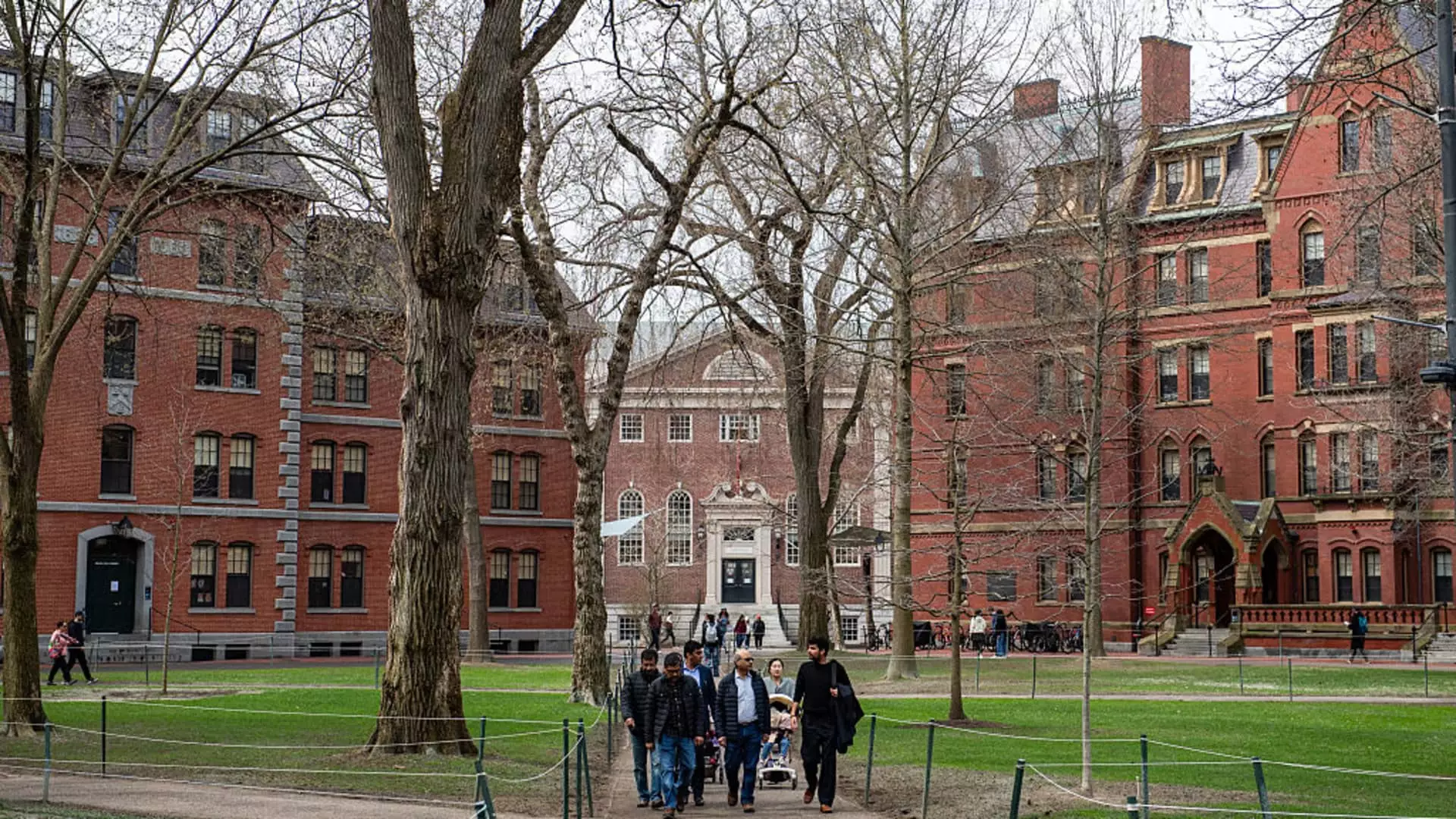The recent confrontation between Harvard University and the White House has exposed a troubling dynamic within American politics—the federal government’s overreach into higher education. The contentious April 11 letter, ostensibly authored by officials from key federal agencies, represents not only an alarming set of demands but also a significant intrusion into the autonomy of academic institutions. While the letter has been deemed “unauthorized,” its substantive content challenges the very essence of liberal education and intellectual diversity, which are foundational pillars of the academic world.
Miscommunication or Malpractice?
The narrative surrounding the letter suggests a chaotic situation within the White House. Reports indicate that multiple factions within the administration viewed the letter’s dissemination differently, raising questions about accountability and intent. Was this a misguided attempt at oversight or a calculated strike against academic freedom? Regardless of the intended message, the demand to dismantle Diversity, Equity, and Inclusion (DEI) programs and to subject international student admissions to ideological scrutiny is outright draconian. Such actions hark back to a time when academic environments were dictated by political whims rather than intellectual rigor.
Real-world Consequences of Ivory Tower Battles
It’s easy to underestimate the significance of these developments, but the ramifications are profound. Harvard’s rejection of the White House’s sweeping demands risks jeopardizing nearly $9 billion in federal funding. The immediate fallout is not just a clash between a prestigious university and federal authority; it’s a struggle for the very future of academic institutions in the United States. If universities cower in the face of political pressure, the educator’s mission to cultivate critical thinking and diverse viewpoints risks stagnation, potentially leading to an environment where only state-sanctioned narratives can thrive.
Consequences for Students and Society
Harvard’s spokesperson aptly highlighted the dilemma posed by political meddling—it’s not merely a matter of bureaucracy; students, faculty, and communities are at stake. The real-life implications of these federal actions on students’ educational experiences cannot be overstated. For a society that claims to cherish pluralism and debate, it is nothing short of hypocritical for those in power to attempt to dictate the ideologies that should be embraced within a learning environment. This represents a direct contradiction to the very ethos that encourages critical discourse and diverse perspectives.
A Call to Resist Political Pressures
In the face of such overt intimidation from federal entities, it’s imperative for academic institutions to assert their independence. While it may be tempting to comply with administrative demands for fear of losing funding or resources, yielding to this pressure not only endangers the institution’s integrity but also weakens the academic landscape as a whole. We must advocate for a system that prioritizes intellectual integrity over compliance. The role of education should not be to enforce conformity but to foster an environment of inquiry and exploration, a principle that should remain protected from the hand of governmental overreach. The current administration’s tactics underline an unsettling erosion of that autonomy—one that must be met with staunch resistance from the academic community and society at large.


Leave a Reply